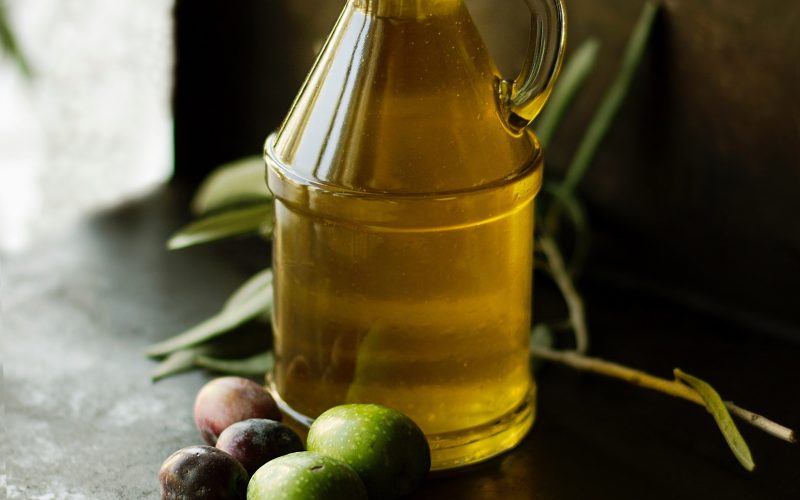Are you confused by the never-ending debate about which cooking oil is best for your health? With so many conflicting opinions and marketing gimmicks, it’s hard to separate fact from fiction. But fear not, because we’ve done the research for you! In this blog post, we’ll reveal the truth about cooking oils and help you make informed decisions in the kitchen. From debunking common myths to highlighting overlooked benefits, get ready to learn everything you need to know about this essential ingredient. So grab a snack (preferably one cooked in healthy oil), and let’s dig in!
The Different Types of Cooking Oils
There are a lot of different types of cooking oils out there, and it can be hard to keep them all straight. Here’s a quick guide to the most common types of cooking oils and their uses:
Vegetable oils: These are usually made from a blend of different vegetable oils, like soybean, corn, or canola oil. They’re neutral in flavor and have a high smoke point, making them good for high-heat cooking methods like frying.
Olive oil: This oil is made from crushed olives and has a fruity, peppery flavor. It has a lower smoke point than other oils, so it’s best used for low-heat cooking methods or added to dishes after they’re cooked.
Coconut oil: This oil is made from the flesh of coconuts and has a slightly sweet, nutty flavor. It has a very high smoke point, making it good for high-heat cooking methods like frying. However, it solidifies at room temperature, so it’s not always the best choice for baking recipes that call for liquid oils.
Butter: Butter is technically an oil, but it behaves differently than other oils because it contains water and milk solids. It has a rich flavor and a low smoke point, so it’s best used for low-heat cooking methods or added to dishes after they’re cooked.
The Nutritional Value of Cooking Oils
Cooking oils are a necessary part of any kitchen, but with so many options on the market, it can be difficult to know which one to choose. While there are many factors to consider when choosing a cooking oil, one of the most important is the nutritional value.
Each type of oil has a different nutritional profile, so it’s important to choose one that fits your needs. For example, olive oil is a good source of healthy fats, while coconut oil is rich in medium-chain triglycerides (MCTs), which can boost your energy levels.
When it comes to cooking, it’s also important to consider the smoke point of the oil. This is the temperature at which the oil starts to smoke and break down, releasing harmful toxins into the air. Some oils have a higher smoke point than others, so it’s best to use those for high-heat cooking methods like stir-frying or deep-frying.
To help you make an informed decision about which oil to use, we’ve compiled a list of the most popular types of cooking oils and their nutritional value.
The Pros and Cons of Using Cooking Oils
There are a lot of different opinions out there about what type of oil is best for cooking. It can be hard to know who to trust and what to believe. To help you make an informed decision about which oil to use for cooking, we’ve compiled a list of the pros and cons of using various types of oils.
Olive oil is a popular choice for cooking because it is relatively healthy and has a high smoke point. However, olive oil can be expensive and it doesn’t have a neutral flavor, so it may not be ideal for all recipes.
Canola oil is another option that is often used in cooking. It is less expensive than olive oil and has a neutral flavor, making it versatile for use in many recipes. However, canola oil is not as healthy as olive oil and has a lower smoke point, so it may not be the best choice for high-heat cooking methods.
Vegetable oils like soybean oil, corn oil, and peanut oil are commonly used in commercial kitchens because they are relatively inexpensive and have high smoke points. However, these oils are highly processed and are not as healthy as unrefined oils like olive oil or coconut oil. In addition, vegetable oils can have strong flavors that may not be desirable in all recipes.
Coconut oil is becoming increasingly popular as a cooking oil due to its health benefits and versatile flavor profile. However, coconut oil is more expensive than other types
How to Choose the Right Cooking Oil
Choosing the right cooking oil can seem like a daunting task, but it doesn’t have to be! Here are a few simple tips to help you choose the best oil for your needs:
1. Consider the smoke point. The smoke point is the temperature at which an oil begins to break down and release harmful toxins. Be sure to choose an oil with a high smoke point for any cooking that will involve high heat, such as frying or sautéing.
2. Know your fats. Not all fats are created equal! saturated fats tend to be solid at room temperature, while unsaturated fats are usually liquid. Saturated fats are generally considered less healthy than unsaturated fats, so if you’re looking for a healthier option, choose an unsaturated fat.
3. Consider the flavor. Some oils have a strong flavor that can impart itself onto your food – if you don’t want your food to taste like the oil, be sure to choose a milder option.
4. Compare prices. Cooking oils can vary widely in price, so be sure to compare options before making your purchase.
5. Read labels carefully. Some oils are blends of different types of oil, so be sure to read the label carefully to know exactly what you’re getting.
Recipes Using Healthy Cooking Oils
There are many healthy cooking oils to choose from, each with its own benefits. Here are some recipes that put these oils to good use:
-Sautéed vegetables: Heat up a pan with oil and cook your favorite veggies until they’re soft.
-Roasted chicken: Coat a chicken with oil before roasting it in the oven.
-Baked fish: Drizzle oil over fish before baking it.
-Salad dressing: Whisk together oil, vinegar, and spices to make a healthy salad dressing.
Conclusion
Cooking oils can be tricky to navigate, but understanding the truth behind cooking oil fiction is essential for a healthy lifestyle. We hope this article has helped you better understand what makes up different types of cooking oils and how they impact your health. Knowing which oil to use in different scenarios can help prevent unwanted effects on your body and make sure that every meal you cook is as delicious and nutritious as possible.












